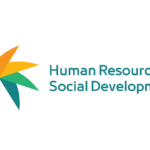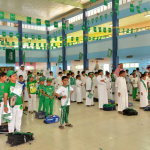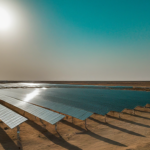
“I think it has learned the lesson that, as big as its economy is, people are just not going to move to Saudi Arabia if it lacks entertainment options and the social environment is too restrictive. In the long run, the social-cultural opening up we are seeing will make its economy more vibrant.”
–Amjad Ahmad, Director and Resident Senior Fellow at the Atlantic Council, discussing Saudi Arabia’s youth bulge. [Brink]

“Saudi Arabia is in a strong position. Oil demand is going up, not down; U.S. shale is not what used to be, and for the foreseeable future the world is going to need more Saudi oil.”
–Jason Bordoff, dean of the Columbia Climate School and a former senior White House energy official under President Barack Obama. If oil prices and Saudi output stay at current levels, the kingdom’s gross oil revenues will top $300 billion in 2022, according to Bloomberg News estimates – putting Riyadh on track to enjoy one of its best ever years. [Bloomberg]

“Gulf countries currently import over 85 per cent of their food… nearly all rice is imported, as is 93 per cent of cereals, 62 per cent of meat and 56 per cent of vegetables. That level of virtual water demand must factor into the regional conversation on sustainability, including food self-sufficiency and food security.”
-Paul Sullivan comments on the hidden cost of ‘virtual water’ with the amount of water traded virtually through the imports and exports so far this year alone possibly over 1.4 trillion tons. [The National]

“I have been struggling for over 50 years, even in Germany. Girls were not allowed to play when I started when I was 11 years old. We had to fight for our rights and admission to championships, to play in a league and all that. So it’s a little of deja vu, where I feel that I can contribute because of my experience, to help and support them, and to build women’s football here in Saudi Arabia in a professional, structured way.”
–Monica Staab, first coach of the Saudi women’s national team. Last month, Staab visited 28 women’s football clubs in Riyadh, Jeddah and Damman and was impressed to learn that each had between 20 and 40 players. Trials held for the national team drew 700 hopefuls, 30 will make the team. [The National]

“Smoking is among the most pervasive behaviors that contribute to cancer in MENA, especially lung cancer. Although smoking rates are decreasing around the world, up to 50 percent of the population of MENA uses tobacco, and rates are expected to increase to 62 percent by 2025.”
-The Overlooked Threat of Cancer in the Arab Region. [Arab Center]

“Smoking is among the most pervasive behaviors that contribute to cancer in MENA, especially lung cancer. Although smoking rates are decreasing around the world, up to 50 percent of the population of MENA uses tobacco, and rates are expected to increase to 62 percent by 2025.” The Overlooked Threat of Cancer in the Arab Region [Arab Center]

“I want to see a more established industry so that we don’t need to worry about crews, funding, distribution. We can then focus on telling the story rather than how to technically make it.”
–Sara Mesfer, Saudi director and screenwriter. Fellow Saudi filmmaker and screenwriter, Mohammed Alhamoud, added, “To start an industry, you definitely need to have a film school.” Alhamoud, believes there will be one established within the next five years. [Screen Daily]

“In the Gulf, and particularly in Saudi Arabia, there is a very keen awareness that in order to tap into global capital markets, you’ve got to think about green bonds.”
-Francis La Salla, the chief executive of Issuer Services at BNY Mellon. [Bloomberg]











